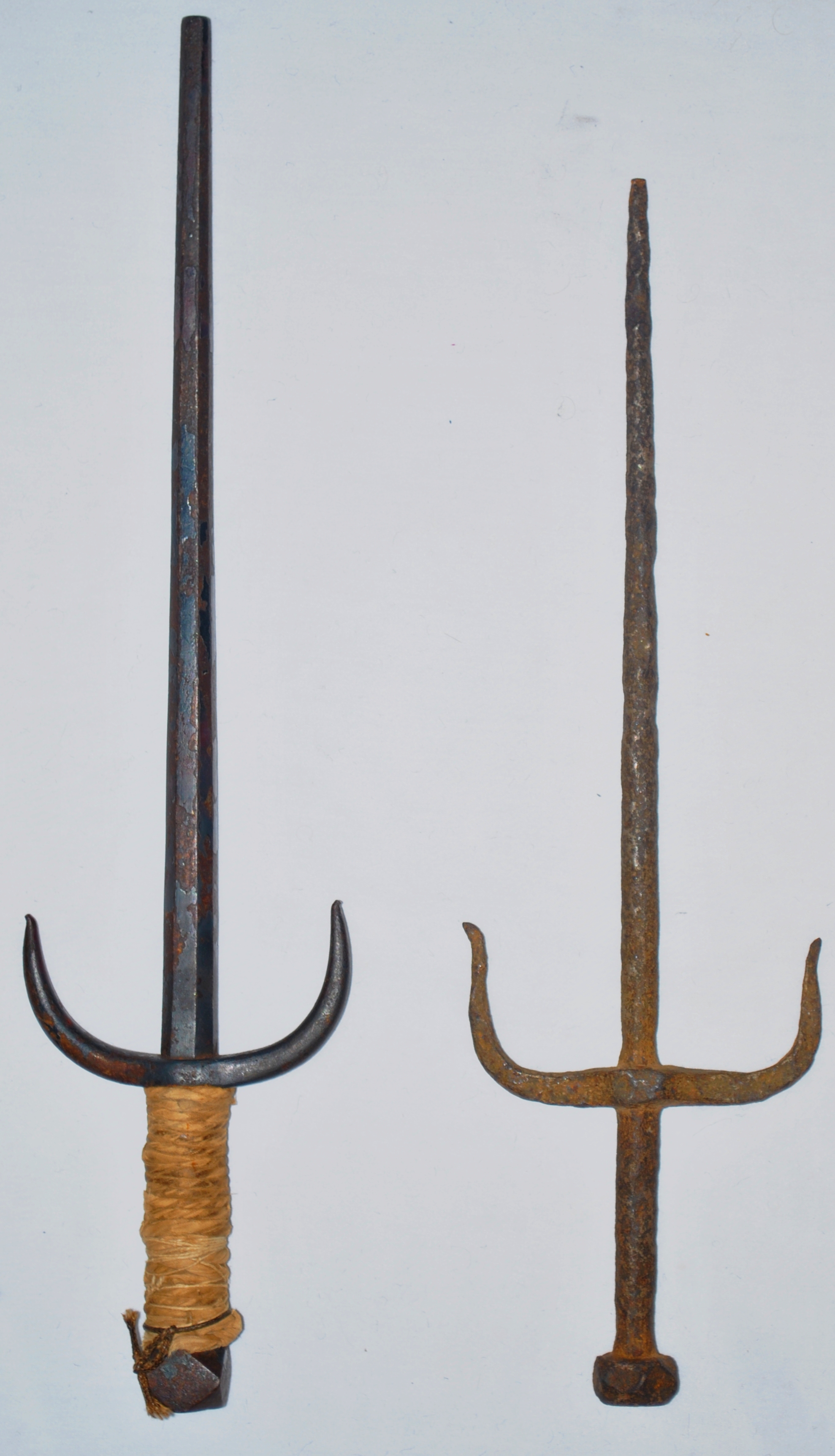|
Eiku
An ''eku'' (sometimes spelled ''eiku'' or ''ieku'') is an ancient weapon of Okinawan ''kobudō''. Its first intended purpose is as an oar. See also * Culacula * Taiaha A taiaha () is a traditional weapon of the Māori people, Māori of New Zealand; a close-quarters staff weapon made from either wood or whalebone, and used for short, sharp strikes or stabbing thrusts with efficient footwork on the part of the wi ... References External links Article, images & video on Eku(Okinawa Prefectural Government website) Weapons of Okinawa Blunt weapons Ancient weapons {{Blunt-weapon-stub ... [...More Info...] [...Related Items...] OR: [Wikipedia] [Google] [Baidu] |
Okinawan Kobudō
, literally "old martial way of Okinawa", is the weapon systems of Okinawan martial arts. Etymology and definition Okinawan Kobudō is a Japanese term that can be translated as "''old martial way of Okinawa''". It is a generic term coined in the twentieth century.Donn F. Draeger, 1973. ''Classical Budo''. ., p. 135. Okinawan kobudō refers to the weapon systems of Okinawan martial arts. These systems can have from one to as many as a dozen weapons in their curriculum, among them Bō, kon (six foot staff), Sai (weapon), sai (short-handled trident), tonfa (handled club), Kama (weapon), kama (sickle), and nunchaku (two rope- or chain-connected sticks), but also the tekko (knuckledusters), tinbe-rochin (shield and spear), and surujin (weighted chain). Less common Okinawan weapons include the tambo (weapon), tambo (short stick), the hanbō (middle length staff) and the eku (boat oar of traditional Okinawan design). Okinawan kobudō is distinguished from the general term kobudō, whi ... [...More Info...] [...Related Items...] OR: [Wikipedia] [Google] [Baidu] |
Taiaha
A taiaha () is a traditional weapon of the Māori people, Māori of New Zealand; a close-quarters staff weapon made from either wood or whalebone, and used for short, sharp strikes or stabbing thrusts with efficient footwork on the part of the wielder. Taiaha are usually between in length. It has three main parts; the ''arero'' (tongue), used for stabbing the opponent and parrying; the ''upoko'' (head), the base from which the tongue protrudes; and the ''ate'' (liver) or ''tinana'' (body), the long flat blade which is also used for striking and parrying. Use Mau rākau is the martial arts, martial art that teaches the use of the taiaha and other Māori people, Māori weapons in combat. As with other martial arts styles, students of the taiaha spend years mastering the skills of timing, balance and co-ordination necessary to wield the weapon effectively. The taiaha is widely known due to its use in the ''wero'' — the traditional Māori challenge during the pōwhiri, a f ... [...More Info...] [...Related Items...] OR: [Wikipedia] [Google] [Baidu] |
Culacula
A culacula is a paddle war club from Fiji. Uses in Fiji Usually cut from a hardwood type of iron wood, it has a broad blade and was used by chiefs or priests to deflect arrows during war.Susan Cochrane, Max Quanchi, ''Hunting the Collectors : Pacific Collections in Australian Museums'', 2014, p. 4/ref> See also * Bulibuli * Gata * Sali * Totokia * Ula Bibliography * Fergus Clunie, ''Fijian Weapons & Warfare'', 2003. * Jean-Edouard Carlier, ''Archipels Fidji - Tonga - Samoa: La Polynésie Occidentale'', Voyageurs & curieux, 2005. * Rod Ewins, ''Fijian Artefacts: The Tasmanian Museum and Art Gallery Collection'', Tasmanian Museum and Art Gallery The Tasmanian Museum and Art Gallery (TMAG) is a museum located in Hobart, Tasmania. The museum was established in 1846, by the Royal Society of Tasmania, the oldest Royal Society outside England. The TMAG receives 400,000 visitors annually. ..., 1982. References Throwing clubs Clubs (weapon) Ritual weapons Culture ... [...More Info...] [...Related Items...] OR: [Wikipedia] [Google] [Baidu] |
Weapons Of Okinawa
A weapon, arm, or armament is any implement or device that is used to deter, threaten, inflict physical damage, harm, or Death, kill. Weapons are used to increase the efficacy and efficiency of activities such as hunting, crime (e.g., murder), law enforcement, self-defense, warfare, or suicide. In a broader context, weapons may be construed to include anything used to gain a tactical, strategic, material, or mental advantage over an adversary or enemy target. While ordinary objects such as rock (geology), rocks and bottles can be improvised weapon, used as weapons, many objects are expressly designed for the purpose; these range from simple implements such as club (weapon), clubs and swords to complicated modern firearms, tanks, missiles and biological warfare, biological weapons. Something that has been repurposed, converted, or enhanced to become a weapon of war is termed ''weaponized'', such as a biological warfare, weaponized virus or laser weapon, weaponized laser. Histo ... [...More Info...] [...Related Items...] OR: [Wikipedia] [Google] [Baidu] |
Blunt Weapons
Blunt may refer to: * Blunt (surname), a surname (and list of people with the name) * Blunt (cigar), a term used in the cigar industry to designate blunt-tipped, usually factory-rolled cigars * Blunt (cannabis), a slang term used in cannabis culture * Blunt (Person of Interest), "Blunt" (''Person of Interest''), an episode of the TV series ''Person of Interest'' * Blunt, South Dakota, USA * Blunt Peninsula, Nunavut, Canada * ''Blunt Magazine'', an Australian blogging e-zine published quarterly * Blunt (snowboard magazine), ''Blunt'' (snowboard magazine), a 1990s American periodical See also * Blunt ends, a possible configuration of a DNA molecule * Blunt force trauma, a type of physical trauma in medical terminology * Blunt instrument, a category of melee weapons * Blunted affect, a lack of emotional response in psychology * Slide (skateboarding) for bluntslide, a skateboard trick * Blount (other) {{disambiguation ... [...More Info...] [...Related Items...] OR: [Wikipedia] [Google] [Baidu] |



